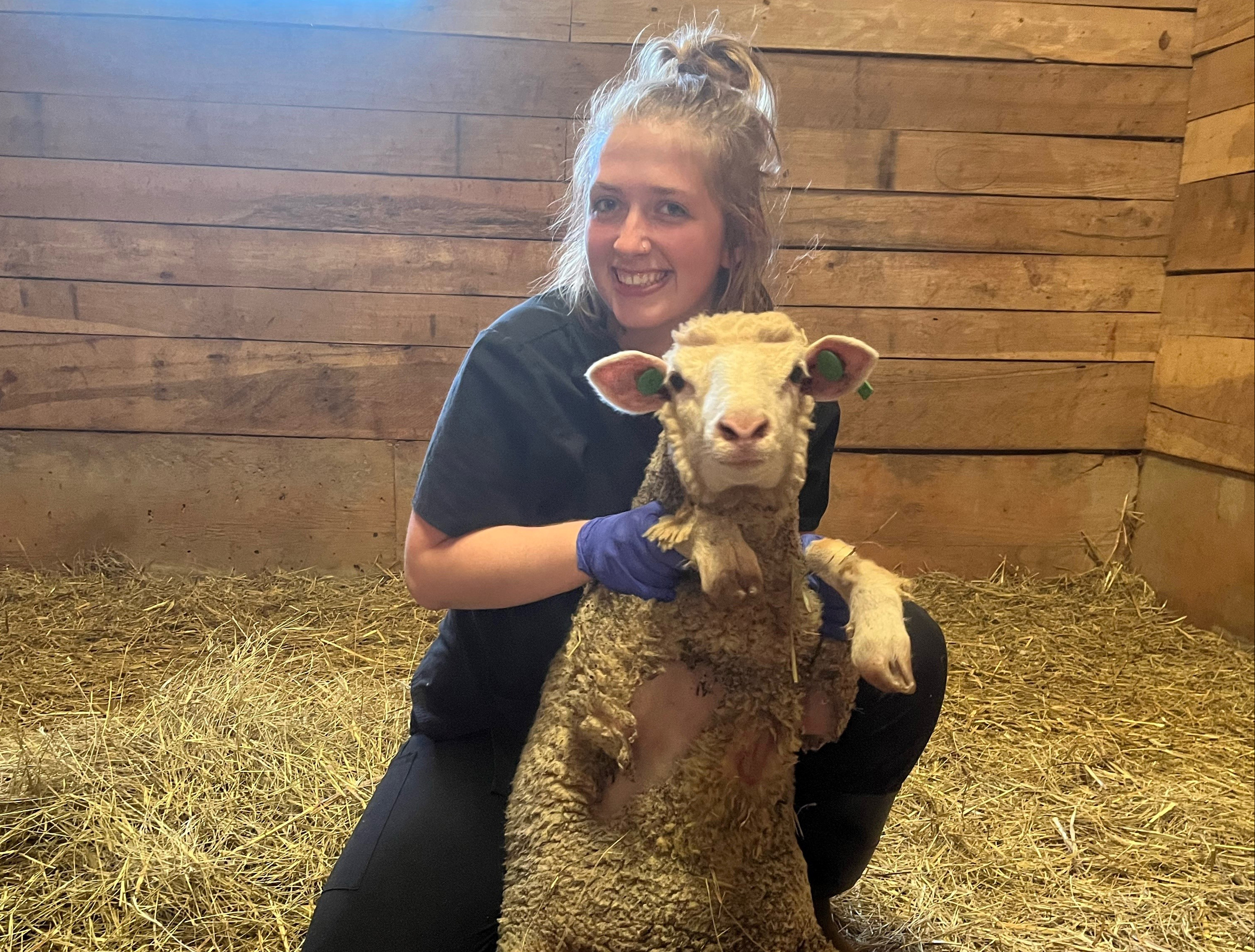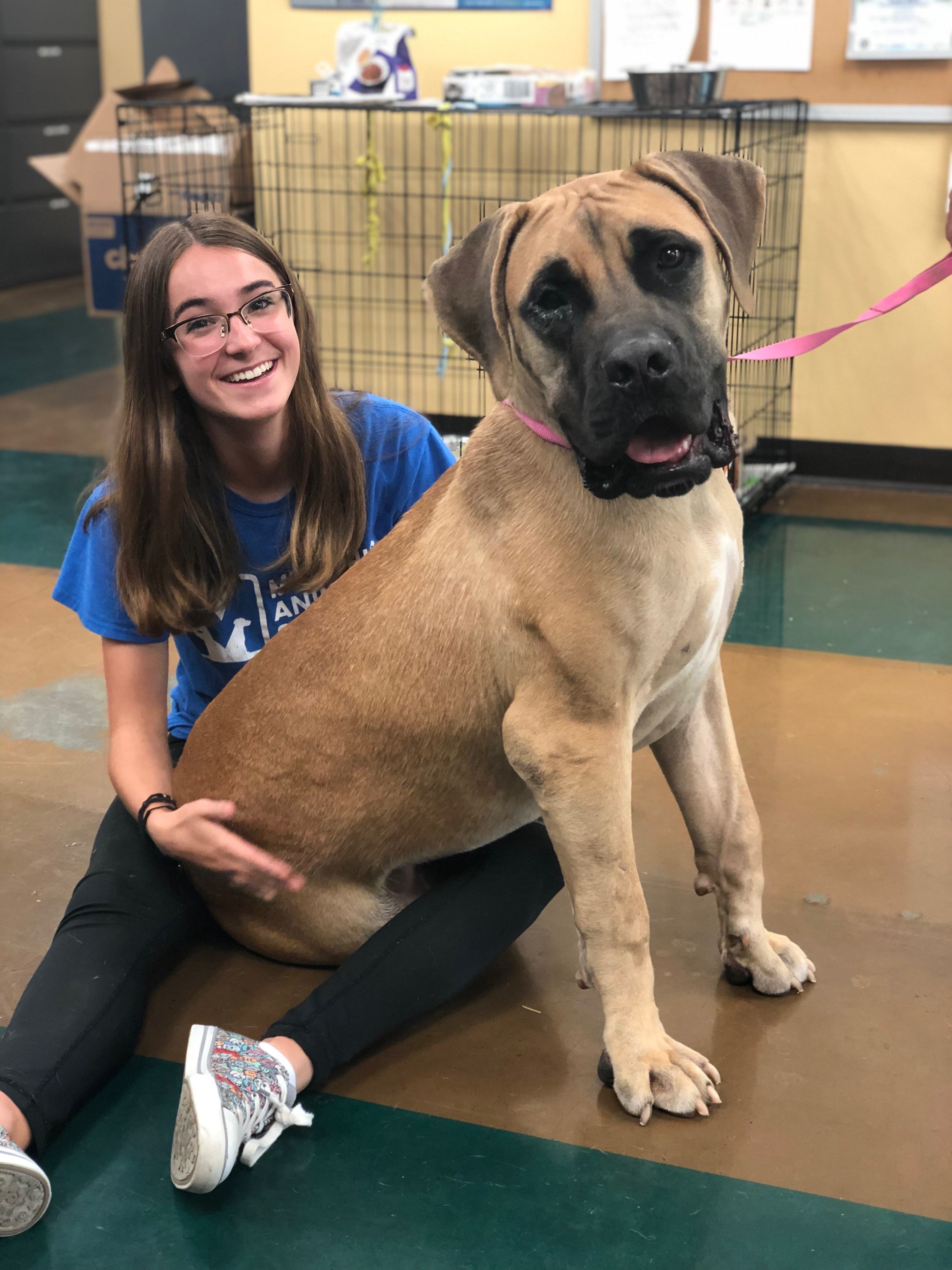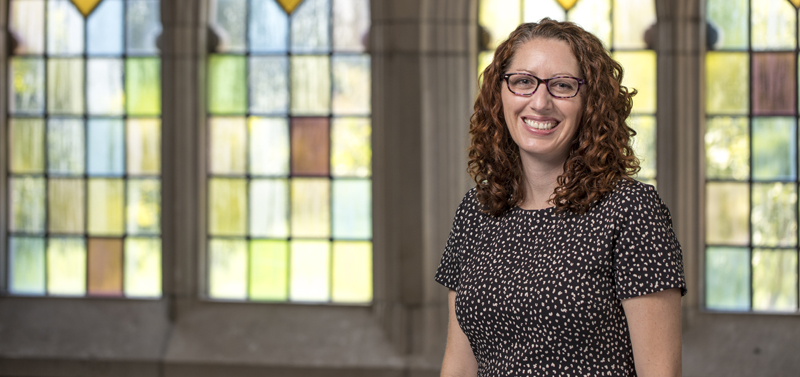As Rhodes’ strong Health Professions Advising program continues to grow, students are finding success across a wide range of post-graduate programs.
By Matthew Harris '20
When considering Rhodes, prospective students are often drawn to the campus for its beautiful Collegiate Gothic architecture, inclusive community, or the opportunity for a liberal arts education in a city setting. But for alumna Ashley Lavender ’21, who transferred to Rhodes from Vanderbilt University, it was the focus and access to pre-veterinary studies.
“I was unhappy at Vanderbilt. I did not feel supported and the environment there felt more competitive versus collaborative,” says Lavender. “When I started looking at transferring, I was looking for a smaller school where people were more interested in helping each other out versus knocking each other down. I visited and I loved the campus. I loved being in the city and since I wanted to go to vet school, it was exciting for me that Rhodes was right across from the Memphis Zoo, especially when my tour guide mentioned that there were opportunities there for research.”
Lavender represents the growing number of students coming to Rhodes for pre-health studies. These students benefit from Rhodes’ Health Professions Advising (HPA) program, which strives to help students succeed in post-graduate studies and health professions. The office, which has three full-time advisors, works with about 30 percent of the Rhodes student body and with alumni, providing support and working closely with Career Services staff to place students into internships and post-graduate positions that pertain to their medical interests.

“We’re really a clearinghouse for all things pre-health. That’s how we think of ourselves. We work with prospective students, current students, and alumni, partnering with them to help them on their journey and reach their goals,” says Director of Health Professions Advising Jessica Kelso. “We do that by providing one-on-one advising, a lot of programming opportunities and, within those programming opportunities, unique experiences or internships that make them competitive on post-graduate applications. We also focus on the reflective piece. It’s important to talk to students about courses that they need to take, but also help them navigate the pre-health advising process.”
Over the last four years, Rhodes had 283 students accepted into post-graduate health programs with an overall acceptance rate of approximately 74 percent. While Rhodes’ high acceptance rates into medical schools are well known, the college has also excelled in enrolling students into specialty post-graduate health programs. Rhodes graduates boasted a 78 percent acceptance rate into dental programs, an 80 percent acceptance rate into optometry programs, and a 91 percent acceptance rate into pharmacy programs. Most impressively, Rhodes students had a 75 percent acceptance rate into veterinary programs and a 90 percent acceptance rate into physical therapy programs, which nationally have between 10-15 percent and 18 percent acceptance rates, respectively.

Throughout their time in the Health Professions Advising program, students work hand- in-hand with their advisors. Advising begins at Open Rhodes, the college’s orientation for admitted students, where advisors and students can meet and begin planning for the first-year students’ inaugural semester.
“HPA was one of the first things that I got involved with at Rhodes after transferring. I was excited about it because my previous school didn’t have a pre-veterinary advisor, only pre-medical,” says Lavender. “When I went to meetings and asked a question about something related to veterinary school, I would watch them Google it in front of me.” When I came to Rhodes and heard about the work the HPA staff does, I was super excited. I set up an individual meeting with Dr. Alan Jaslow (former pre-vet advisor). It was reassuring because he knew things about vet school. It made me feel more comfortable with my decision.”
For students like Jillian Gray ’23, who plans to attend dentistry school, the meetings during Open Rhodes served as a great first impression and helped her understand what was in store for her next four years at Rhodes.
“I remember how adamant the HPA advisors were about meeting with us during our first year and just making sure that you knew what was expected. They did a good job of giving new students an idea of what needed to be done if you were interested in pursuing a job in healthcare professions,” says Gray. “We would have group meetings and individual meetings where they would focus on your personal goals to make sure you were on the right trajectory."
The role of HPA advisors doesn’t end with putting students on the right track—they remain an active part of students’ journeys throughout their years at Rhodes. As students go through the program, their experience becomes more tailored to their needs as advisors adapt to their individual strengths and weaknesses. The goal of HPA is to provide direct support to students and equip them with the skills and experience to be successful in post-undergraduate studies.
“During my junior year and senior year, the advice has been more personalized and focused. Last year I met with my advisor a lot and she helped me know what the next steps were in the application process. I have family in dentistry, so it wasn’t all foreign to me, but she made me understand exactly what I needed to do,” says Gray. “She helped me understand what I should expect moving forward in the process, to organize my schedule for studying for the Dental Admissions Test, and plan when the best time would be to take the test. Overall, the HPA advisors are very transparent, helpful, and just help lead you in the right direction for what you want to do.”
The HPA process also has systems in place for students that come in wanting to go down the pre-medical path but end up focused on different specialties. Alumna Genevieve Tuznik ’22 came to Rhodes intent on medical school, but after working closely with local nonprofit Memphis Animal Services through the Bonner Scholarship for Service program instead pivoted to pre-veterinary studies.
“Through Bonner and working at Memphis Animal Services, I got to experience firsthand working with animals and got exposure to the medical side of things while helping around their clinic. At the same time, I was shadowing a pediatrician and volunteering at a cancer clinic,” says Tuznik.

“Over time, I felt that what I was doing at Memphis Animal Services and what I was seeing there felt more impactful and had a bigger impact on me.” When Tuznik reached out to her advisor to inquire about changing her focus to pre-veterinary studies, she was pleasantly surprised at the response and support she received.
“I spoke with her about what I should do next, and she was very supportive. She said something along the lines of ‘Congratulations, we’re glad that you found out what you want to do, and let’s move you to where you need to be,’ and put me in contact with Dr. Jaslow, who was the pre-veterinary advisor at the time. He started working on setting expectations and standards for pre-veterinary and what it would look like.”
Alumnus Krish Muthiah ’21 shared a similar experience with Tuznik. Muthiah, who also came to Rhodes on the pre-medical track, was set to begin his applications to medical schools before he decided to switch to pre-optometry studies.
“I was fully committed to the pre-med track. I had taken the MCAT prep course after they started offering it and had even taken the MCAT itself. I was loading up on science courses, which ended up being prerequisites for optometry school,” says Muthiah.
Despite changing his focus halfway through his junior year, Muthiah was able to use the credits and the experiences from the Health Professions advisors to smoothly transition into the optometry field. Muthiah, who now attends the Southern College of Optometry, also credited Rhodes with helping prepare his mindset for post-graduate classes.
“During my first year at Southern College of Optometry, I had six classes and pretty much all six of those classes in some way, shape, or form could relate to something I learned at Rhodes,” says Muthiah. “It helped me with taking on the doctor mindset, especially when I moved into upper-level courses.”
The student-driven nature of the HPA program and of Rhodes itself often causes students to form close relationships with their advisors, in which students feel comfortable asking for support. As students’ progress through the pre-health pipeline and their needs change, advisors shift roles to what is needed most by their students.
“We know that a student who comes in as a first-year is going to be a different person by the time they get ready to apply, and by the time they’re graduating and entering professional school. We want them to document that growth and to have all these things to look back on when they begin to apply, so we help facilitate that to make their applications as strong as possible,” says Kelso.
Though a large part of the HPA program is centered around getting students ready for post-graduate studies, advisors also work to empower students to take the initiative and advocate for their own needs.
“The advisors do not say, ‘You have to do these things, you have to come to these meetings.’ It’s very much up to that individual student, but they do their best to make sure that they’re very accessible people. It was amazingly easy to make meetings or ask for assistance,” says Tuznik. “Personally, I got to a point where I only needed help with my essays, so they were just reading over my essays and giving me feedback. We did that over and over again until we were all satisfied, and it was never an issue despite the number of times I asked.”
One large advantage that Rhodes students can leverage when applying to post-graduate schools is the direct access to research opportunities and high-tech modern equipment available to them as undergraduates. Unlike some institutions, Rhodes does not have a mandatory waiting period for students to begin conducting undergraduate research, meaning that students can get valuable experience much earlier than their peers. Rhodes’ location in the city also means that partnerships with St. Jude Children’s Research Hospital, The Memphis Zoo, and various other health groups around Memphis are easily accessible to students.
“I was impressed by the amount of access to the equipment we had as students. Friends and colleagues that I talked to who went to larger colleges were stunned that we had up-to-date equipment that was open to student use under supervision,” says Muthiah. “Many of them had their first experience with medical equipment in their post-graduate studies.”
HPA’s impact on campus and among post-graduate students is what keeps Kelso excited about the future.
“I am continually blown away by how bright, hardworking, and enthusiastic our students are. To get to come in and develop relationships with them, hear what motivates them, see what they are doing out in the community, and what they hope to do in the future, is inspiring. I really love what I do.”

